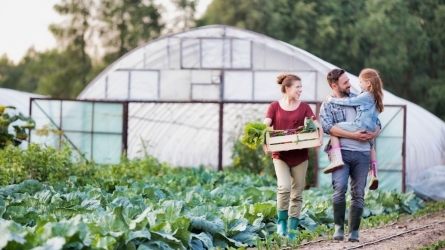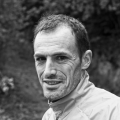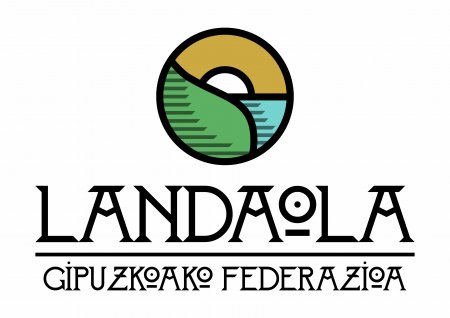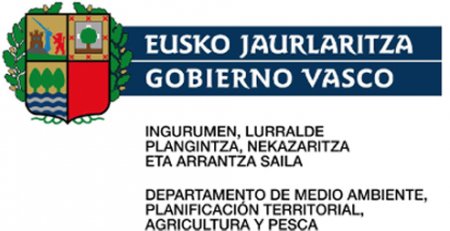
"Lurretik Mahaira" Elikadura estrategia jasangarri eta osasuntsua
"Lurretik Mahaira" proiektua ezagutu
Description
"Lurretik Mahaira" proiektua Landaola Federazioak koordinatzen duen lankidetza proiektua da, HAZI Fundazioa, ELIKA Fundazioa, ABELUR Kooperatiba eta LURGINTZA kooperatibak lankidetzan garatua. Gipuzkoako Foru Aldundiaren “Etorkizuna Eraikiz. Misioak 2022” deialdira aurkezten den elikadura jasangarriaren erronkari erantzutera datorrena.
Ikastaroetan, proiektu honen inguruko informazioa eman nahi da, dituen 4 esparru nagusiak adieraziz:
- Trebatu lurralderatzea
- Lur funtsen saretzea
- Komertzializazioa
- Sentsibilizazioa
Objectives
"Lurretik Mahaira" proiektua ezagutarazi eta zabaltzea.
Trebatu gune ezberdinak eta bertako kideen esperientziak zuzenean ezagutzea.
Bestalde nekazaritzaren balio ekosistemikoen azterketa eta hauen monetizazioa izango dugu aztergai.
Activity directed to
- All public
- University student
- Professionals
- Lehenengo sektoreari zerbitzua ematen dieten teknikariak eta baserritarrak
In collaboration with
Program
22-09-2023
Erregistroa eta dokumentazioaren banaketa
Inaugurazio Instituzionala
“Trebatu eta lur funtsen saretzea“
- Iker Karrera Aranburu | Tolomendi Landa Garapeneko gerentea eta Landaolako kidea
- Jon Andoni Urdangarin | Gipuzkoako Foru Aldundiko Lurralde Oreka Berdea Departamentua, Landa Garapeneko eta Lurralde Orekako Zerbitzuburua
“Nekazaritzaren externalitateen monetizazioa “
- Jon MIkel Zabala Iturriagagoitia | Deustuko unibertsitatea
Break
Round table: “Trebatze gune ezberdinetako esperientziak ezagutzea“
- Juan Mari Totorika | Haztegia
- Ander Zorrakin | Haztegia
- Kattalin Sainte-Marie | Trebatu
- Olivier Gervais | Trebatu
- Miriam Saldias | Gaztenek
- Koldo Huegun | Lumagorri
Directors

Yurre Peñagarikano Zubeldia
Urkome

Agurtzane Etxaniz Etxaniz
Asociación de Desarrollo Rural de Debabarrena
Speakers

Olivier Gervais

Koldo Huegun

Iker Karrera Aranburu
Tolomendi
Formazioaz nekazaritza ingenieri teknikoa. Bi hamarkada baino gehiagoz Tolosaldeko Tolomendi Landa Garapen Elkartean teknikari modura lanean

Kattalin Sainte-Marie

Miriam Saldias

Juan Mari Totorika

Jon Andoni Urdangarin
Jon MIkel Zabala Iturriagagoitia
Universidad de Deusto
He is Associate Professor at the Department of Economics at the University of Deusto in Donostia-San Sebastian (Spain). He received his PhD from the Polytechnic University of Valencia (Spain) in Engineering and Innovation Projects (2008). During the PhD, he was a visiting researcher at the Technical Research Centre of Finland (VTT). Then he moved to CIRCLE (Centre for Innovation, Research and Competence in the Learning Economy) at Lund University (Sweden) as a post-doc, where he also hold an assistant professorship. He got a Marie Curie Fellowship that allowed him to join the Deusto Business School, where he is currently employed. His main research skills and interests include science, technology and innovation policy, innovation management, and the use of indicators to inform policy decisions and evaluations related to innovation.

Ander Zorrakin
Registration fees
| Face-to-face | Until 22-09-2023 |
|---|---|
| 0 EUR | |
| 0 EUR | |
| 0 EUR | |
| 0 EUR | |
| 0 EUR |
Venue
GOIZANE Zentroa, Zaldibia
Olaeta Auzoa, 6, 20247 Zaldibia, Gipuzkoa
Gipuzkoa
GOIZANE Zentroa, Zaldibia
Olaeta Auzoa, 6, 20247 Zaldibia, Gipuzkoa
Gipuzkoa
Sustainable development goals
Agenda 2030 is the new international development agenda approved in September 2015 by the United Nations. This agenda aims to be an instrument to favour sustainable human development all over the planet, and its main pillars are the eradication of poverty, a reduction in equality and vulnerability and fostering sustainability. It is a unique opportunity to transform the world up to 2030 and guarantee human rights for all.

11 - Sustainable cities and communities
Texto ods pendiente. Lorem ipsum dolor sit amet.
Añadir link12 - Responsible consumption and production
Texto ods pendiente. Lorem ipsum dolor sit amet.
Añadir link






